In the coming days, our Rector Sergey Eduardovich Zuev will once again be brought from the “Matrosskaya Tishina” detention centre to Tverskoy District Court of Moscow to determine the form of his extended restraint measure – whether to keep him in remand or place him under house arrest.
Sergey is not feeling well, but nevertheless, he continues to read, work on his books, and respond to letters. Whatever happens to him and whatever decision this or any subsequent courts make, Zuev remains the Rector of Shaninka, which keeps working and developing the way he intended. Today, we want to tell you who Sergey Zuev is and talk about his biography, interests, and life principles.
Sergey is not feeling well, but nevertheless, he continues to read, work on his books, and respond to letters. Whatever happens to him and whatever decision this or any subsequent courts make, Zuev remains the Rector of Shaninka, which keeps working and developing the way he intended. Today, we want to tell you who Sergey Zuev is and talk about his biography, interests, and life principles.
About Sergey Zuev
Sergey Zuev noted in one of his interviews: “I have a preliminary response to the question about the ideal person. It’s a person capable of moving forward or, rather, advancing. And in that sense, a person is seen as an opportunity and not as a total number of his or her previous deeds”.Sergey Zuev was born on the 25th of April, 1954 in Moscow. His mother, Vera Kuzminichna, taught history and social studies in school at the time, and before that, she was an elementary school teacher. His father Eduard Nikolayevich Zuev, Professor at the Moscow Power Engineering Institute, worked at the Department of Electric Power Systems for most of his life.
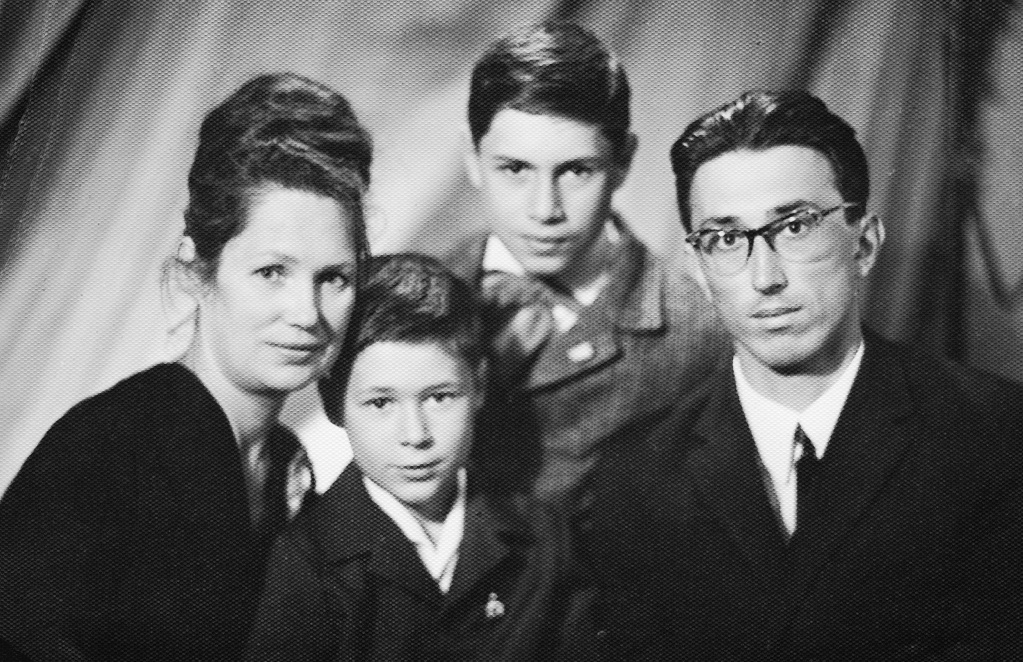
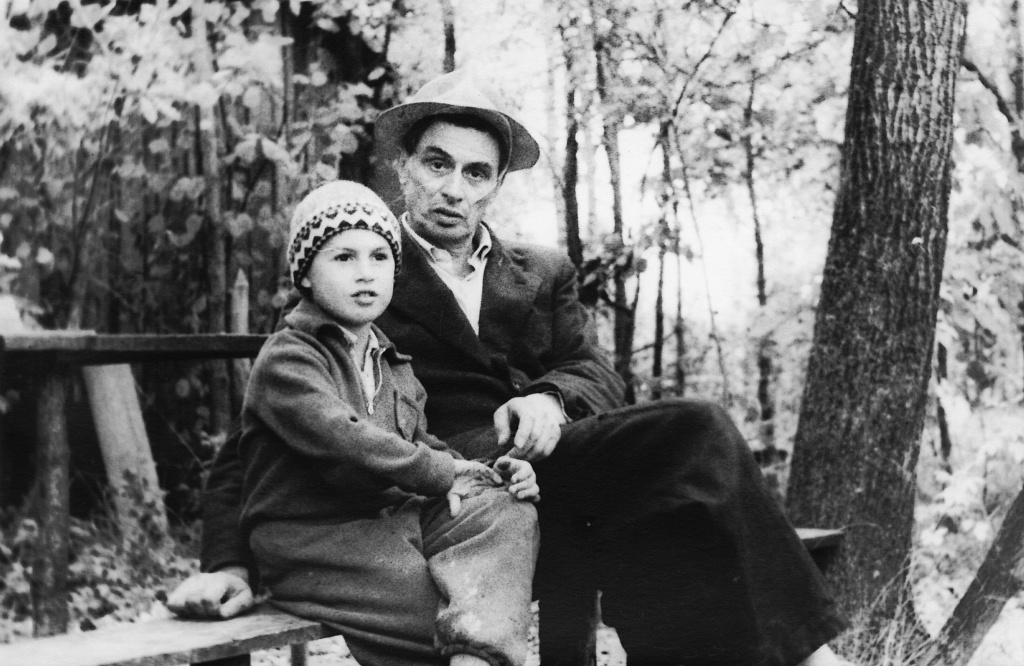
Education
In 1971, Sergey Zuev enrolled in the Chinese Studies Department of the Military Institute of Foreign Languages. And in two years, he transferred to the Faculty of Philology of MSU (Moscow State University), from which he graduated in 1978. It was a time when MSU’s teaching staff included philosopher Evald Ilyenkov and young Sergey Averintsev; when everyone would occasionally go to VGIK (the Gerasimov Institute of Cinematography) and the Institute of Psychology to attend lectures by Merab Mamardashvili, who wasn’t allowed to teach in MSU.Zuev ended up studying at the Faculty of Philology alongside Sergey Zenkin, now a literary scholar and translator as well as a three-time winner of the Leroy-Beaulieu Prize; Yuri Slezkine, now Professor of History at the University of California, Berkeley (USA), Director of the Institute of Slavic, East European, and Eurasian Studies at the same university, and author of such books as The Jewish Century and The House of Government; Irina Prokhorova, Editor-in-Chief of the ‘New Literary Observer’ publishing house; Andrey Zorin, literary scholar and historian, an expert in the history of Russian culture and intellectual history, Oxford Professor. It was Zuev who invited Zorin to develop and lead the ‘Public History: Historical Knowledge in the Contemporary Society’ programme in Shaninka.
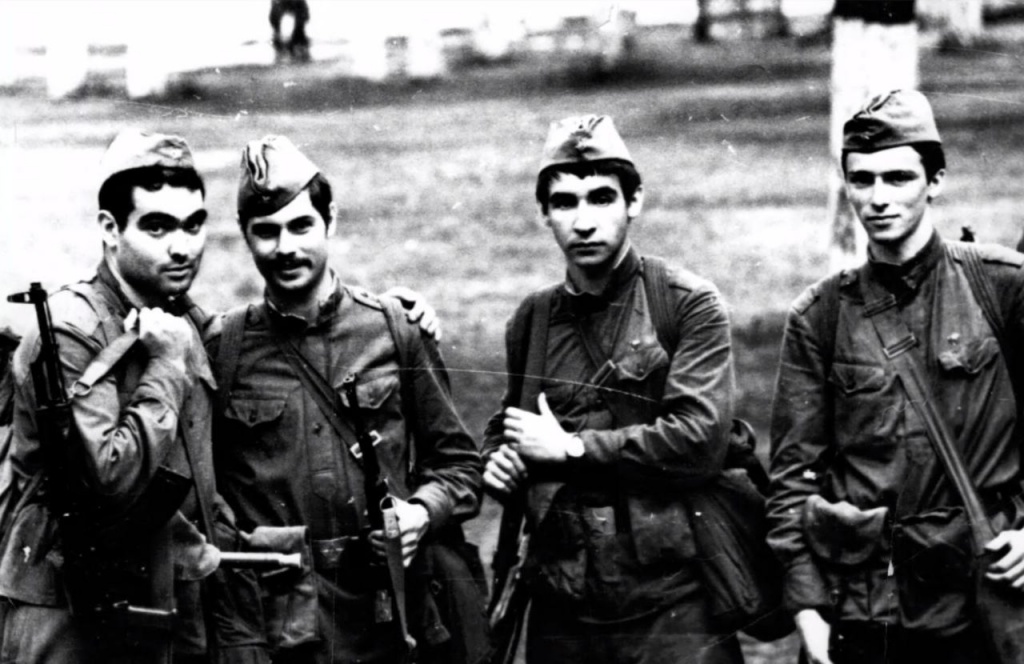
Left to right: Andrey Zorin, Sergey Zuev, Sergey Ivanov, Yuri Slezkine
The Moscow Methodological Circle and the School of Cultural Policy
In the late 1980s, Sergey Zuev befriended various members of Georgy Shchedrovitsky’s Moscow Methodological Circle. In one of his interviews, he states: “I wasn’t a member of the MMC. I entered that historical space through the School of Cultural Policy. Pyotr Shchedrovitsky introduced me to Georgy when I was already the managing director of SCP (School of Cultural Policy), so I was perceiving many, if not all, of the things that were happening in that ‘methodological field’ in the 1990s and the following years through that cultural and political lens”.In 1989, Sergey Zuev was appointed Director of the School of Cultural Policy (SCP), which became the first project to relate the idea of ‘cultural policy’ equally and inextricably to both historical thought along with historical memory and the way of envisioning the future that was being formed through an iconic-symbolic game. Dozens of people who have now achieved major success studied in the School of Cultural Policy in the 1990s.
SCP is one of the educational projects that started emerging in the 1990s. It was conceived as a prototype of a methodological university, where the idea of development was recognised as an implicit value and the inclusion of students in project work was considered one of the main principles of the educational process. Sergey Zuev and his colleagues were working on integrating the project approach into education and culture. They were holding organisational activity games (OAG) all over Russia as well as project-oriented and problem-solving seminars, where the participants were given the opportunity to translate their ideas and dreams into concrete action. Such events were attended by hundreds of people who now work in business, public administration, education, science, culture, etc. For most of them, it was their first experience with game practices aimed at solving social issues and managing change. Sergey Zuev has become one of the most renowned experts in cultural policy and a demanded consultant on social and cultural project management.
He has always emphasised that the replication of Western practices is a futile and costly affair and that Russian regions have their own resources and growth opportunities. He argued that the unique history and culture of a specific territory can become the driver of its economic growth and social welfare. We shouldn’t ask the government and businesses for money – we should show the government and businesses what that specific town or settlement has to offer in terms of the basis for new businesses, projects, and institutions.
By the end of the 1990s, Zuev’s assets included not only hundreds of seminars on social and cultural project management for various professional communities, such as filmmakers, theatre workers, architects, designers, museologists, and librarians, but also the idea for an educational project aimed at training cultural managers. According to Zuev himself, the method for social and cultural project management lies “at the intersection of project design and the attempted resource use of culture, where the widely recognised cultural heritage can be converted into social, political, economic development and modernisation”.
In 1998, that idea and a meeting with Teodor Shanin led to the creation of the Faculty of Cultural Management in the Moscow School of Social and Economic Sciences (MSSES).
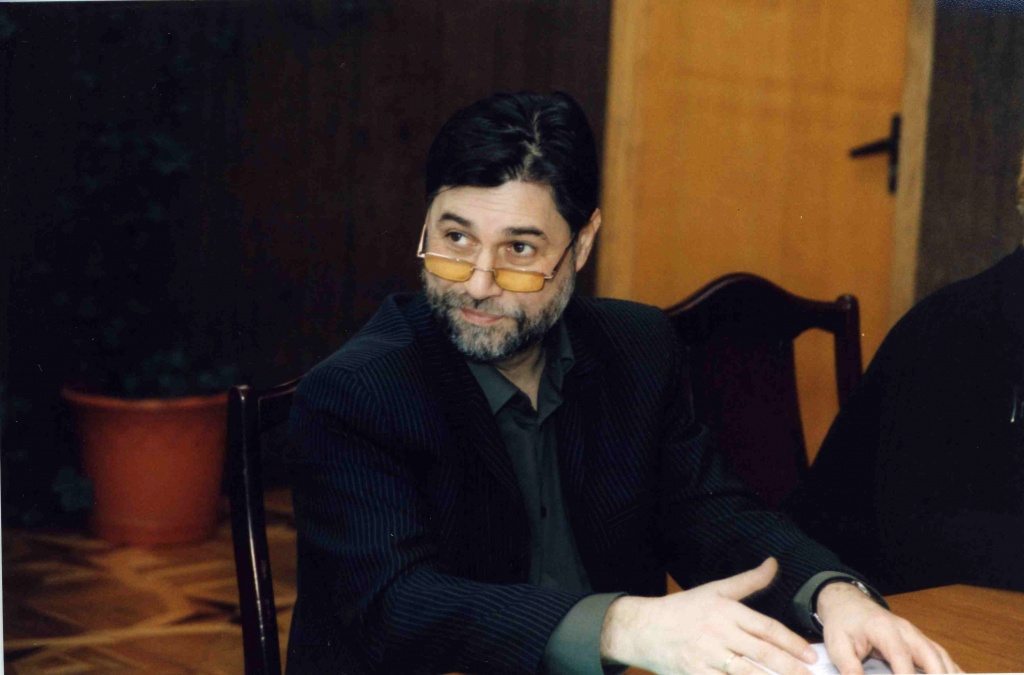
Faculty of Social and Cultural Project Management
In 1995, Teodor Shanin, a sociologist, Professor and Dean of the Faculty of Sociology at the University of Manchester (UK), established the Moscow School of Social and Economic Sciences together with the sociologist and Academician of the Russian Academy of Sciences (RAS) Tatyana Zaslavskaya. And in 1998, Zuev proposed Teodor to establish the Faculty of Cultural Management in the School.There were no such faculties in the country back then, so Zuev’s faculty became the first of its kind. Social and cultural project management emerged as a discipline and occupation that were very new for Russia. At the time, the subject of cultural management and working with national cultural heritage was just starting to become the international mainstream, whereas Shanin and Zuev had already established an educational programme in that field, knowing that it was the future. The Faculty’s programme was completely new for the School’s partner, the University of Manchester, as well. It had no similar programmes and that is why MSSES’ compliance with the international educational standards was confirmed by the University of Aberdeen, which validated the Faculty’s programme. Its first graduates were receiving a professional retraining diploma along with the diploma from the University of Aberdeen.
In 2003, the Faculty teachers and alumni from Russia and Belarus established the Association of Cultural Managers with its underlying thesis “Culture is one of the most important resources for regional development”. The Association became the basis for one of the first major projects in the museum sector – the “Changing Museum in the Changing World” grant competition organised by the Vladimir Potanin Foundation. In the 17 years of the grant programme’s existence, over a thousand museum workers have attended Sergey Zuev’s project seminars.
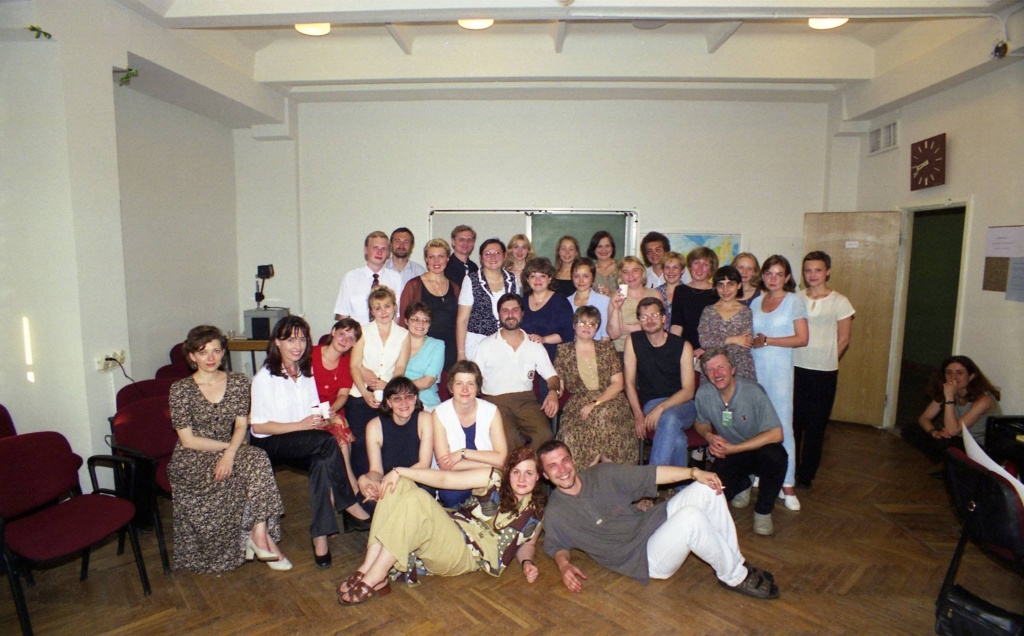
Territorial development
Among Zuev’s friends was the late Vyacheslav Glazychev, Professor of the Moscow Architectural Institute, author and translator of the first books on urban development and urban planning in Russian. They were working on the development strategy for Russian regions. Zuev has always been interested in decentralisation, the establishment of horizontal linkages, locally adjusted management, and regional differences being used as advantages.Glazychev and he were analysing how one could accommodate the interests of authorities, businesses, and public organisations on the same territory when they all have different visions for the future of that territory; how culture can become the ‘field’ for connecting divergent interests. Zuev worked to implement the long-standing idea of resource use of culture, where the widely recognised cultural heritage could be converted into social, political, economic development and modernisation. In the late 1990s, he started inviting the alumni of the Faculty of Social and Cultural Project Management to join his team.
Many of the things achieved by Sergey Zuev and his team in Volga Federal District in the early 2000s, when Sergey Kiriyenko was the presidential envoy there, were eventually scaled and implemented all throughout the country. Among such projects were personnel competitions that engaged active and independent people in civil service, which was quite unpopular at the time; ideas for local “cultural capitals”, and territorial development projects.
In 2006, in parallel with the work in MSSES, Sergey Zuev, together with Vyacheslav Glazychev, established the Centre for Regional Development in the Academy of National Economy under the Government of the Russian Federation.
Back then, Zuev was assembling multi-subject and multidisciplinary expert teams to work on the strategies and programmes for the social and economic development of the Russian Federation entities. He participated in creating scenarios for the development of the Russian North, Kaliningrad Oblast, the Republic of Buryatia, Kaluga Oblast, Astrakhan Oblast, Smolensk Oblast, Tatarstan, Karelia, the territories of Greater Norilsk, and Krasnoyarsk Krai.
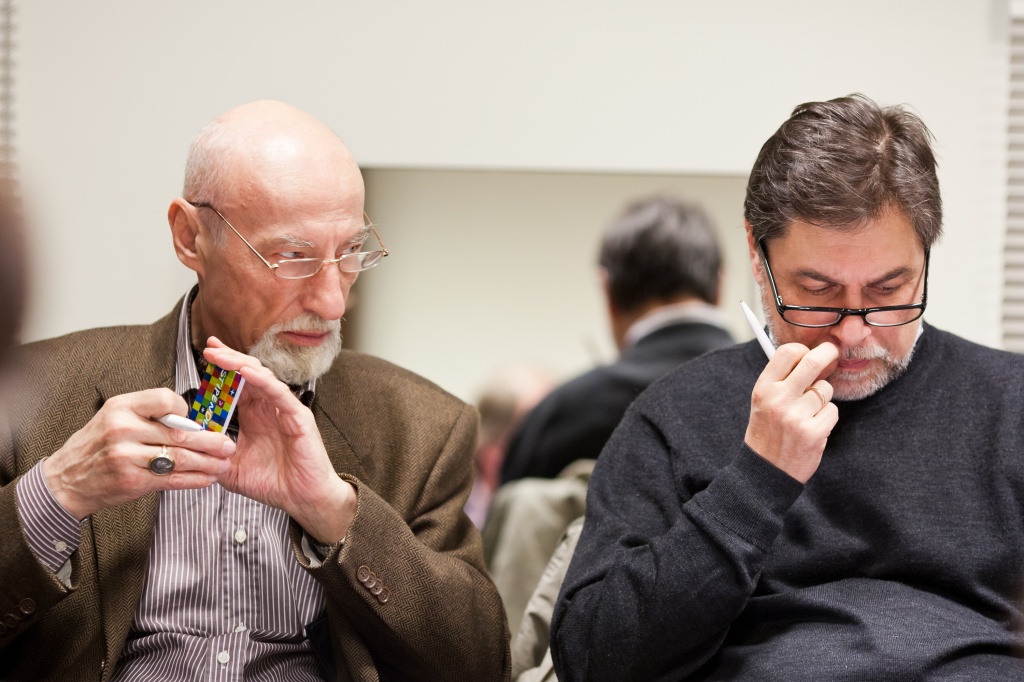
RANEPA’s Institute for Social Sciences
In 2009, Vladimir Mau, Rector of the Academy of National Economy (eventually reorganised into RANEPA) tasked Zuev with establishing a new faculty. Zuev was given carte blanche to create new programmes that would combine modern approaches to public and social administration with the students’ extensive training in humanities. In the last 12 years, a small innovative faculty turned into the Institute for Social Sciences (ISS) with its 5,500 Bachelors and Masters, 10 faculties, and 20 research centres.According to Zuev’s vision, which he has reiterated many times to various audiences, ISS was conceived as a contemporary university education project. To that end, Sergey assembled a few teams of experienced practitioners, renowned academics, and competent administrators in the Institute. Since its establishment, ISS has held a few dozen scientific conferences on various issues related to social and humanitarian knowledge and started 24 Bachelor’s and Specialist’s programmes as well as 20 Master’s programmes.
Despite the fact that managing all those academic and educational projects requires a lot of time and effort, Sergey Zuev remains a truly active expert in the field of cultural policy and urban studies. In particular, he regularly moderates panels at the Moscow Urban Forum and the annual Gaidar Forum. His amazing ability to employ people who feel passionate about what they do and to give them the opportunity to do their job with minimal bureaucratic burdens is what helps him multitask his responsibilities.
Sergey always finds time for personal interaction with the students. He responds kindly to problems and expectations expressed by his colleagues and staffers. In that regard, according to Alexander Asmolov, Academician of the Russian Academy of Education, Zuev has become the ‘people’s rector’. This can be said of his unique management style both in Shaninka and in ISS.
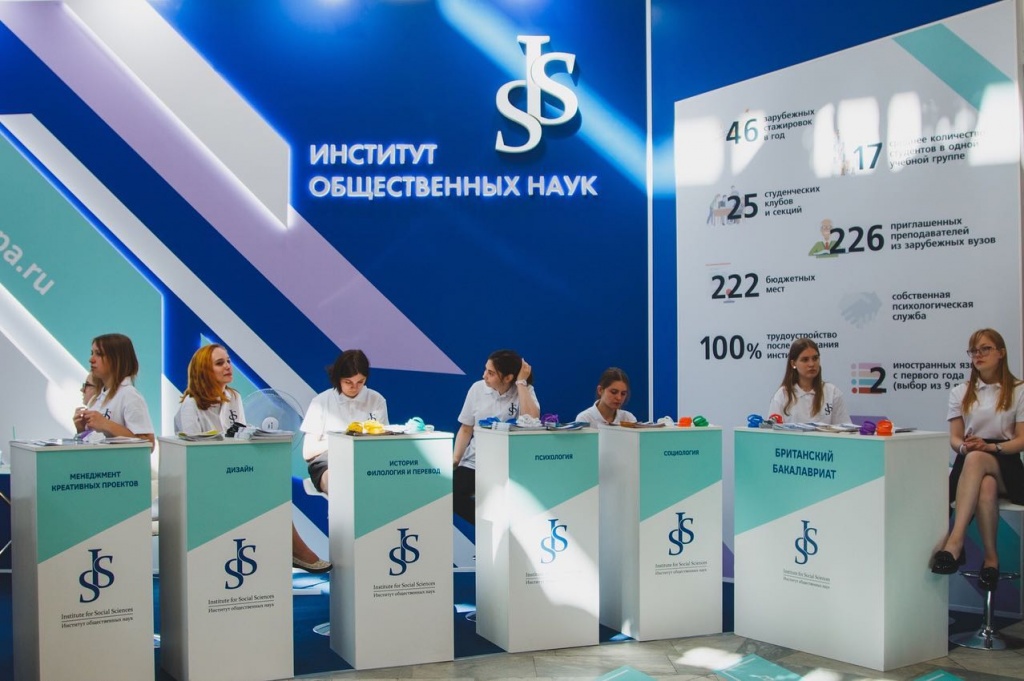
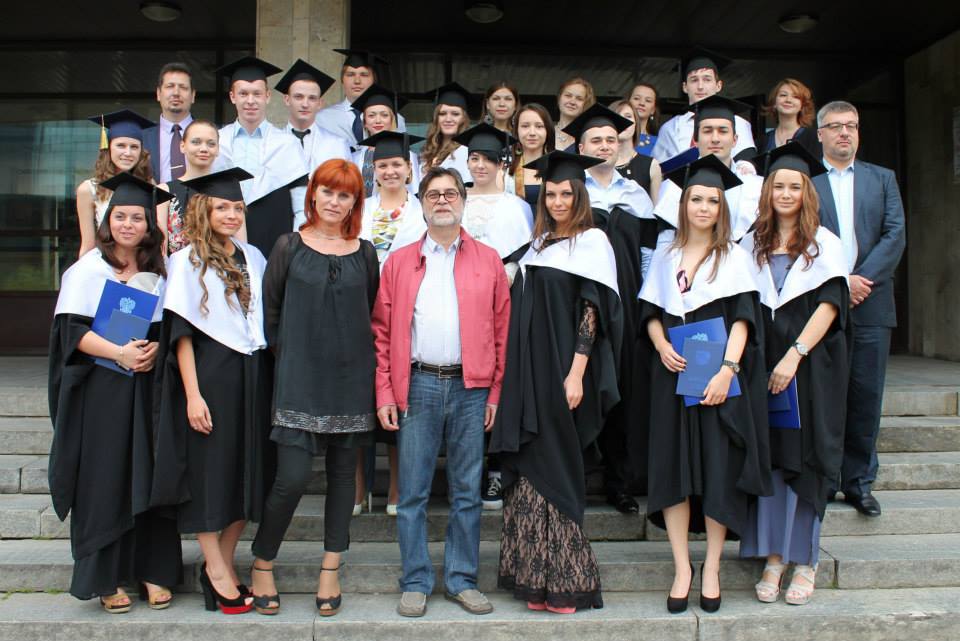
Shaninka
In 2007, Teodor Shanin stepped down as Rector of the Moscow School of Social and Economic Sciences and passed his post to Anatoly Kasprzhak (currently Professor at the National Research University Higher School of Economics). When the latter resigned in 2011, the Board of Trustees approved Sergey Zuev for that position. Shanin remained the School’s President and continued to participate in making all the key decisions, but he could no longer engage in daily managerial work. It was essential that his successors shared his values and kept developing Shaninka in line with Teodor’s vision.Several new educational programmes were introduced under Zuev’s leadership, such as Public History, History of Soviet Civilization, Fashion Studies, and Creative Projects Management. A few new faculties were established, such as the Faculty of Political Science, the Faculty of Media Communications, and the Faculty of Liberal Arts and Sciences. Shaninka has moved from Vernadsky Avenue to the new campus on Gazetny Lane. Its library remains one of the key public spaces in Moscow that holds discussions, book presentations, open lectures, and many other educational events.
In June 2018, Rosobrnadzor revoked Shaninka’s accreditation. It was a trying time for both Zuev and MSSES as a whole. The first major challenge. However, two years later, the accreditation was reinstated.
In the spring of 2021, the European University at Saint Petersburg, New Economic School (NES), the Skolkovo Institute of Science and Technology (Skoltech), and MSSES founded the New University League – association of universities that intend to develop joint network programmes, conduct interdisciplinary research, and define the shared vision for the development of contemporary higher education.
Currently, over 1000 students (600 undergraduate students and 400 graduate and professional retraining students) are enrolled in Shaninka.
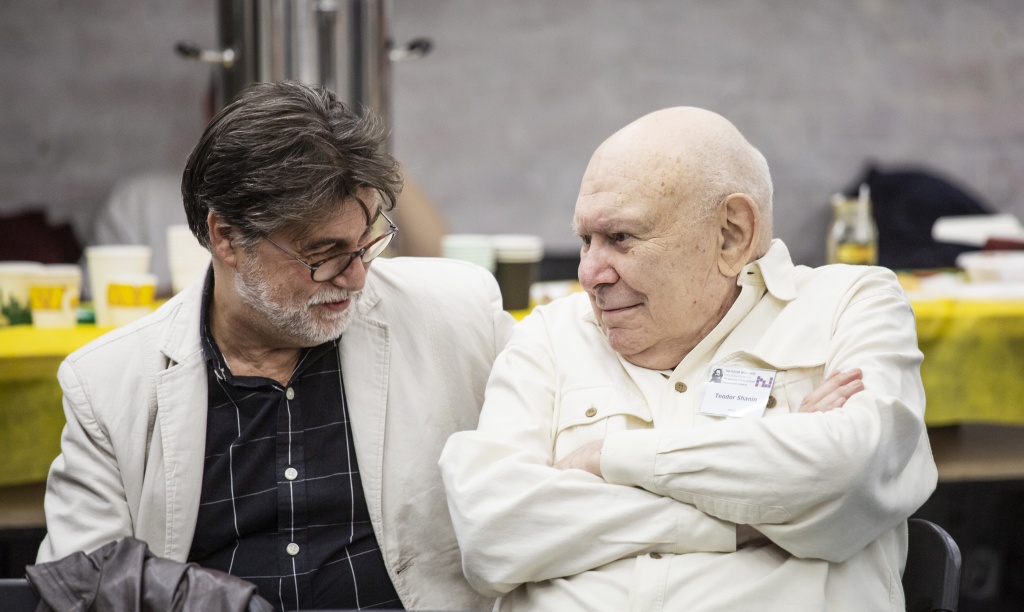
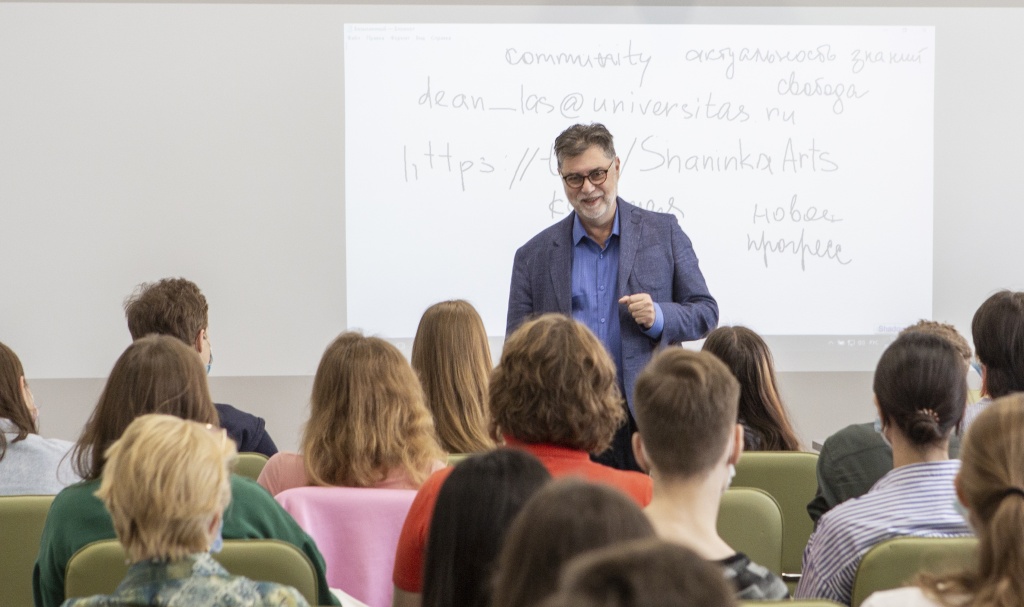
Everything you need to know about Shaninka: there’s no stronger or better university in the field of social sciences in the CIS and Russia. The culture within MSSES matches the high level of global scientific ethics. It’s only possible in organisations and teams if the head himself demonstrates such qualities.
I know Sergey Zuev and I am confident of his decency and professionalism. Sergey Zuev is one of the reasons Shaninka students get to immerse themselves in the effective and exciting educational environment and atmosphere of benevolence. The university lies at the forefront of Russian education in the humanities, and the work of its Rector represents one of the most successful examples of university management. Sergey Zuev and Shaninka need to live and work in peace, continue to provide an interesting future for their students, and guide a whole segment of Russian higher education.
Sergey Eduardovich and Kristina Alexandrovna, we are on your side and we’re all waiting for you in Shaninka – our common home.
Both Shaninka and ISS are unique academic centres that have implemented and continue to implement many important and interesting research projects in such fields as history, sociology, art history, and other humanities. We can’t imagine the socio-humanitarian field of today’s Russia without those institutions. I personally know Sergey Eduardovich to be an incredible organiser of science as well as a decent and supportive colleague; I've talked to Kristina Kryuchkova on more than one occasion and she really helped me out with the consultations. I don’t doubt not only their high level of professionalism but also their decency and integrity.
Kristina Alexandrovna and Sergey Eduardovich, Shaninka is first and foremost people and those people are here for you now.

